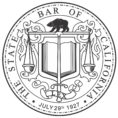Chances of Winning a Personal Injury Lawsuit

If another person’s actions have caused you harm, you may be considering filing a California personal injury lawsuit to recover compensation for your injuries. However, before taking the step to hire a lawyer, you may be wondering, “What are my odds of winning a personal injury lawsuit?”
This is a reasonable question since time is a precious resource that you don’t want to waste on a case that is likely to end in failure. Many factors can affect your odds of receiving a full settlement or a court award.
This article will discuss various factors that can determine the success and value of your claim.
Causes of California Personal Injury Lawsuits
A person may choose to file a personal injury lawsuit after being injured in an accident caused by someone else’s negligence. A personal injury lawsuit allows victims to pursue damages for injuries suffered as a result of the accident.
The following are common types of accidents that result in personal injury cases:
- Car accidents
- Slip-and-falls
- Motorcycle accidents
- Truck accidents
- Defective products
- Cyclist accidents
- Bus accidents
- ATV accidents
- Dog bites
- Train accidents
- Pedestrian accidents
- Workplace accidents
Steps Taken Before Filing a California Personal Injury Lawsuit
Most personal injury claims are settled through negotiations with the insurance company and never go to court. According to the Department of Justice, only about 3 percent of personal injury claims are settled through a trial verdict.
While you may need to go to court to receive fair compensation for your injuries, there are various steps you will likely take before filing a personal injury lawsuit, such as:
- Seeking medical attention: It is important both for your physical health and injury claim that you receive prompt medical attention after an accident. Detailed records provide necessary evidence when you are trying to recover compensation for damages.
- Filing an insurance claim: Notify the other party’s insurance company of your injury claim as soon as possible. An adjuster will be assigned to investigate your claim and determine whether the insurance company is liable.
- Hiring a California personal injury attorney: It is recommended to hire a lawyer as soon as possible after your accident and injury. Your lawyer will explain your legal rights and handle many of the vital steps in the personal injury process.
- Collecting evidence: After taking on your case, your attorney will investigate the cause of your accident and collect evidence to prove fault and liability. Your lawyer may work with accident reconstructionists, medical professionals, engineers, or other experts to gather evidence and build your personal injury case.
- Assessing the value of your case: Your personal injury lawyer will work with you and your doctors to document the severity of your injuries, documenting your past, present, and future medical care needs. Your lawyer will use this information to assess your damages and calculate their value.
- Sending a demand letter: Your lawyer will begin the negotiations process to settle your personal injury claim by sending a demand letter to the insurance company. The demand letter will include a description of how the other party caused your injury, details of the losses and damages you have suffered, and a demand for a specific amount to settle your claim.
- Negotiating a settlement: Your lawyer will help you negotiate a settlement with the insurance company. He or she may accept your demand and pay your claim or may issue a counteroffer. In other cases, insurance companies may completely deny liability.
What Is Involved in Filing a California Personal Injury Lawsuit
If you are unable to settle your claim after going through the above steps, your lawyer may advise you to file a personal injury lawsuit.
The following are some of the steps involved in a personal injury lawsuit:
- Filing a complaint: The complaint is filed with the court in California, and a copy is served to the defendant. The complaint is filed by the injured party (plaintiff) against the at-fault party (defendant). The defendant will have 30 days to respond to the complaint.
- The discovery phase: During the discovery phase, your lawyer obtains information and evidence from the defendant’s legal team. This information may be gathered by depositions, subpoenas, interviews, requests to produce documents, requests for admissions, and other means.
- Further negotiations: Negotiations may be ongoing throughout the personal injury lawsuit process. At any point, one party may decide that it is in their best interests to settle rather than put more time and money into a court case that could be lost.
- Pre-trial motions: When attorneys make pre-trial motions, they are asking judges to make decisions prior to trial. Some common pretrial motions are a motion to dismiss, a motion to change venue, a motion to suppress, a motion for a speedy trial, and a motion for an extension.
- Trial: At trial, both parties will have an opportunity to present their cases in court. A personal injury trial usually consists of opening statements, witness testimony, cross-examination, closing arguments, jury deliberation, and verdict.
- Appeals: Even if the jury rules in your favor, your case may not be over yet. The defendant could file an appeal and ask a higher court to reconsider the ruling. However, there have to be legal grounds for an appeal and to have the jury’s verdict overturned.
Factors That Could Affect Your California Personal Injury Lawsuit
The following are some of the various factors that could affect your chances of winning a personal injury lawsuit.
Liability
In order to win your personal injury lawsuit, you must prove that the other party was negligent and is liable for your accident and injuries.
Therefore, the following elements must be established in a personal injury lawsuit based on negligence:
- Duty of care: You will need to show that, at the time of the accident, the other party owed you a duty of care. This means they had an obligation to act in a reasonable manner that would not cause harm to you or others. For example, drivers have a duty of care to obey traffic laws.
- Breach of duty: Next, your lawyer will need to show that the defendant breached the duty of care owed to you. For example, if a person caused an accident by failing to stop at a red traffic light and crashing into you.
- Causation: The next step is to establish that the breach of duty caused you harm. For example, you would not have been injured if the defendant had not run the red light.
- Damages: Lastly, your attorney will help you prove that your injuries led to economic or non-economic damages. As an example, your car accident injuries resulted in medical bills and lost wages while you recovered.
Learn more about California’s liability laws, here.
Evidence
The majority of California personal injury cases are won or lost based on the evidence that each side presents in court to defend their position. If you have clear and convincing evidence that the other party was at fault, you will have a greater chance of winning your personal injury lawsuit.
Different types of cases require different types of evidence to establish fault and liability. Your personal injury lawyer can help you collect the evidence needed for your specific case.
The following types of evidence are commonly used in personal injury cases:
- Photos: Photos can be an important key to establishing fault in a personal injury case. For example, in a premises liability case, you might present a photo of the property hazard that caused you to fall.
- Video footage: Dashcam or video surveillance footage can sometimes provide undeniable evidence of fault. For example, security camera footage in a grocery store may show the worker mopping the floor that you slipped and fell on and failing to put up a “wet floor” sign.
- Eyewitness testimony: Testimony from people who were eyewitnesses to your accident can make it easier to prove liability. However, the witness’ memory of the events tends to fade with time, so it is important for you or your lawyer to get their statements as soon as possible after the accident.
- Medical records: It is important to seek medical attention as soon as possible after you are injured. Medical records can provide valuable evidence linking the accident to your injuries. The records also show the extent of the injuries you have suffered and what medical treatment is required.
- Statements from expert witnesses: Expert witnesses are professionals who have specialized knowledge or experience in a field relevant to a case. Expert witnesses commonly used in personal injury cases include accident reconstructionists, medical professionals, and economic specialists.
Insurance coverage
Another factor that could affect your personal injury case is whether the at-fault party has insurance coverage. If he or she does not have liability insurance, then even if you win your case, you could be unable to collect damages from the defendant.
For example, if you were in a car accident, you cannot recover compensation from the insurance company beyond the policy limits. If the party who caused your car accident does not have money or assets, it will likely not be worth the time and effort to file a personal injury lawsuit.
Your lawyer may advise you to take another route to get compensation, such as using your uninsured motorist insurance or comprehensive insurance to cover your remaining losses.
This is an example of why it is best to consult a personal injury attorney before filing a lawsuit. An attorney can help assess the strength of your case and advise you as to whether it is worth pursuing.
Injuries
The severity of your injuries can have an impact on your chances of winning your personal injury lawsuit. Typically, the more extensive and debilitating a person’s injuries are, the greater the chance of the judge or jury ruling in their favor.
This may include physical injuries such as:
- Traumatic brain injuries
- Facial scarring and disfigurement
- Paralysis
- Loss of a limb
- Burns
Accident victims with life-altering injuries may require medical treatment, including in-home care for the rest of his or her lives. They may be unable to return to their previous jobs and provide for themselves financially.
Additionally, if you have sustained catastrophic injuries, you likely have suffered mental and emotional trauma. Pain and suffering and other non-economic damages could be included in your personal injury lawsuit.
Venue and jurisdiction
The location of your personal injury accident can affect the amount of compensation you are able to recover. Insurance companies will take into consideration venue and jurisdiction when deciding how much to pay for a personal injury claim.
Jurisdiction refers to whether the court has the power to hear and decide on your personal injury lawsuit. Not every court has the authority to handle your case, but a lawyer can help answer any questions you have about jurisdiction.
A venue is the location where your case will be litigated if you go to trial. Some venues are known to be more favorable to personal injury victims than to insurance companies. Insurers are more likely to offer larger payouts in locations that are known to award larger settlements to accident victims.
Legal caps on personal injury awards
Each state sets its own legal limits on personal injury damages and awards. Most states set a cap on the amount of damages personal injury victims can win. One of the goals of putting a cap on personal injury compensation is to keep claims from needing to go to court if possible.
California law only puts a cap on non-economic damages awarded in medical malpractice claims. This new law caps non-economic medical malpractice damages at $350,000 and wrongful death damages at $500,000.
Legal support
Some people choose to handle complex personal injury claims themselves because they are concerned about the cost of hiring a lawyer. They feel that hiring a lawyer will cut into the settlement amount they receive.
While it is true that most California personal injury lawyers charge a percentage of the amount recovered, handling a claim on your own can be far more expensive than you realize.
Additionally, many insurance companies do not take injured parties seriously if they do not have a skilled attorney representing them.
Consider some of the many advantages a personal injury lawyer can offer you:
- Calculate the value of your claim: A lawyer can accurately calculate the value of your personal injury claim. Knowing the amount you deserve for your injuries can make it easier to negotiate for fair compensation.
- Help you to avoid pitfalls: Most accident victims do not have much experience in negotiating with insurance companies or with how to handle personal injury lawsuits. Insurance companies, at times, try to pressure victims into accepting fast and low settlement offers or admitting fault for the accident. A lawyer can help you avoid these traps.
- Offer legal advice: Your lawyer will take the time to listen to your story and explain your legal rights and options. Your personal injury lawyer will discuss any relevant evidence and determine whether you have a valid claim so that you can make an informed decision about how you wish to move forward with your case.
- Identify all liable parties: In some situations, more than one party may be liable for your losses. Your lawyer can help you identify each at-fault party and the sources of compensation available through each one of them.
- Build your case: An experienced personal injury lawyer will have the knowledge and resources needed to build a solid case on your behalf. Your lawyer will negotiate with the insurance company, gather evidence, and litigate your case in court if needed.
- Negotiate a fair settlement: Most personal injury lawyers are skilled negotiators. They are familiar with the tactics insurers use to avoid paying a claim. Attorneys work hard to obtain maximum compensation for their clients without going to trial.
- Litigate in court: If your lawyer cannot negotiate a fair settlement on your behalf, he or she may advise you to take your case to court. Your lawyer will file all necessary court documents, present your side of the story and evidence in court, and litigate on your behalf.
Contact Us to Learn More About Your Chances of Winning Your California Personal Injury Claim
At Harker Injury Law, we understand that navigating the complexities of personal injury cases can be overwhelming and stressful. The lawyers at our personal injury law firm have years of experience in helping individuals like you assess their chances of success in recovering financial compensation for their injuries.
During your initial consultation with us, we can provide you with insight and guidance as to the strength of your injury claim and your potential for a successful outcome. After taking on your case, you can be assured our legal team will do everything we can to help you recover maximum compensation for your injuries.
Contact us today if you would like assistance understanding the likelihood of success with your personal injury lawsuit. We take personal injury cases on contingency, which means you pay no upfront costs or fees. Call Harker Injury Law today at 760-INJURED to schedule a free consultation or complete the contact form.










